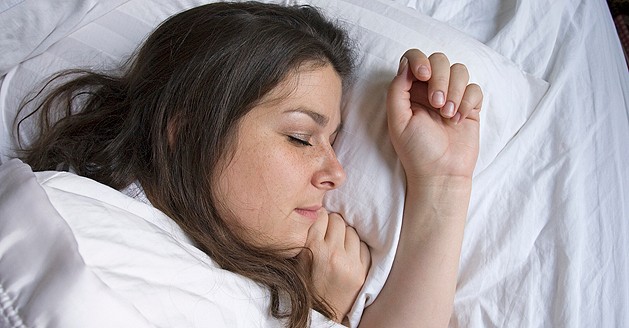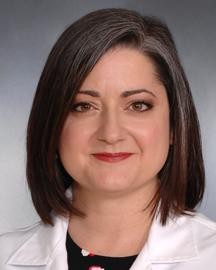
Healthline: People are taking high doses of melatonin to sleep: Why experts are concerned
UC expert says taking too much melatonin could disrupt our sleep-wake cycle
According to a research letter published in the Journal of the American Medical Association, more people are taking supplemental melatonin, and at increasingly high doses. Researchers point out these findings raise safety concerns since the actual dose of melatonin supplements could be nearly 500% higher than the label indicates. In a story published by Healthline, Sarah Gallucci, DO, of the Division of Pulmonary, Critical Care and Sleep Medicine was one of the experts cited reacting to the letter.

Sarah Gallucci, DO, of the Division of Pulmonary, Critical Care and Sleep Medicine at the UC College of Medicine
“Melatonin is considered a dietary supplement and is not FDA approved for safety or effectiveness,” confirmed Sarah Gallucci, DO, an assistant professor of medicine in the Division of Pulmonary, Critical Care and Sleep Medicine at the UC College of Medicine.
She added that there is an organization that confirms the claimed dosage and purity of some brands.
“Supplements that are verified by the United States Pharmacopeial convention are the most reliable,” said Gallucci. “USP verified supplements are tested to ensure that the potency and amounts match the label and that the product does not contain harmful levels of specified contaminants.”
Gallucci added that melatonin is considered “generally safe,” with few serious adverse effects.
“The most common side effects are headache, dizziness, nausea, and fatigue,” she said.
Gallucci cautioned that taking too much melatonin could disrupt our sleep-wake cycle, making it more difficult to fall asleep.
“Safe starting doses range from 2 to 5 mg,” she advised. “Melatonin does not have any addictive potential, which can be seen with some prescription sleep medications.”
Next Lives Here
The University of Cincinnati is classified as a Research 1 institution by the Carnegie Commission and is ranked in the National Science Foundation's Top-35 public research universities. UC's medical, graduate and undergraduate students and faculty investigate problems and innovate solutions with real-world impact. Next Lives Here.
Related Stories
Preparing students for artificial intelligence in education
May 8, 2025
Laurah Turner, PhD, associate dean for artificial intelligence and educational informatics at the University of Cincinnati's College of Medicine, recently joined the For The Love of EdTech podcast to discuss the usage of personalized learning and AI coaches to enhance educational experiences.
UC lab-on-a-chip devices take public health into home
May 8, 2025
University of Cincinnati engineers created a new device to help doctors diagnose depression and anxiety. The “lab-on-a-chip” device measures the stress hormone cortisol from a patient’s saliva. Knowing if a patient has elevated stress hormones can provide useful diagnostic information even if patients do not report feelings of anxiety, stress or depression in a standard mental health questionnaire.
University of Cincinnati names 2025 Mr. Bearcat
May 7, 2025
Spectrum News 1 highlighted Evan Phelps, this year’s 2025 Mr. Bearcat, after his graduation on May 2.
